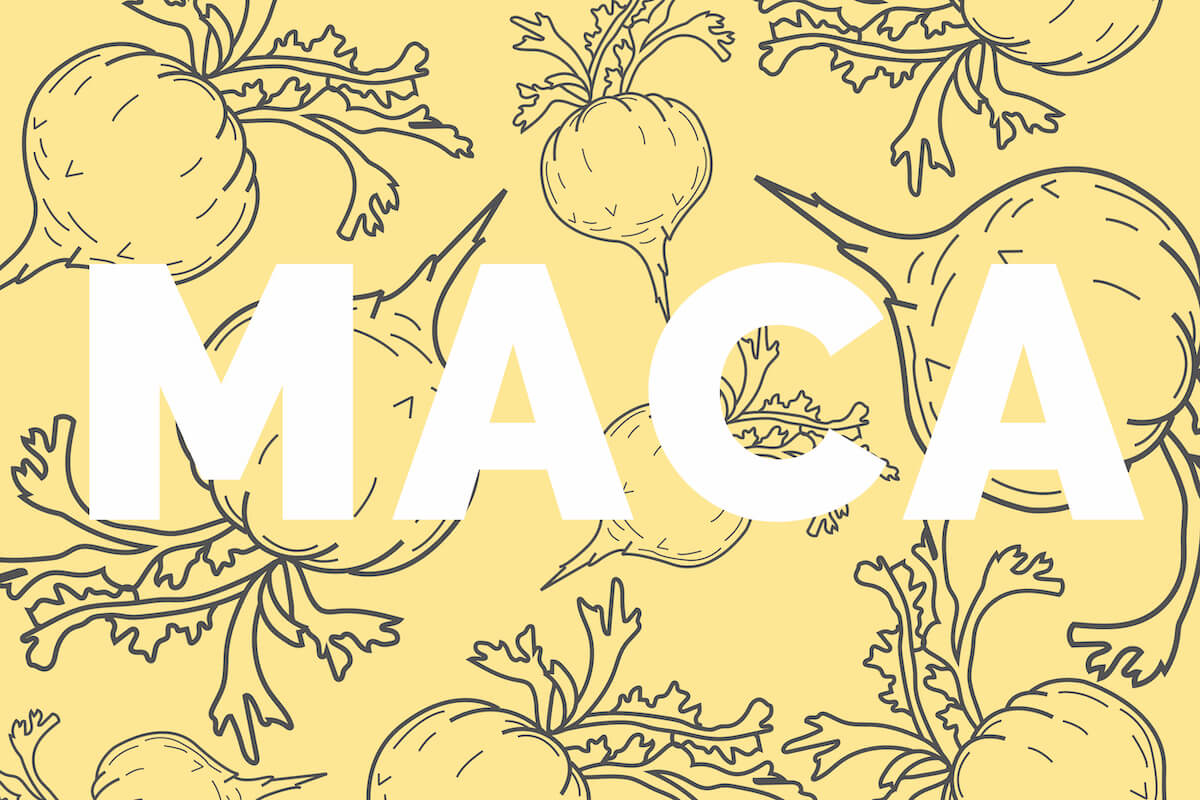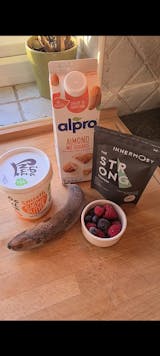Have you heard about Maca root? It seems like everyone is talking about it now, but we’ve been on the bandwagon for a lot longer.
As one of the ingredients in The Fit Protein, we thought it was about time we introduced you to Maca so that you can get to know all the benefits, and grow to love this ingredient just as much as we do.
What is Maca root?
So what exactly is Maca and the Maca Root?
Maca is a plant - a vegetable in fact belonging to the same family as broccoli - that is also known as Peruvian Ginseng or Lepidium meyenii. The plant closely resembles a turnip, and is native to South America, specifically the Peruvian Andes.
It might be obvious, but Maca root is simply put the root of the Maca plant. Whilst it’s not the prettiest of ingredients (let’s be honest, what root vegetable is?) the root is what holds all of the plant’s nutritional benefit.
That’s the bit we’re interested in.
The root of the plant is commonly turned into a dried powder to be used in Maca supplements (like ours!) and has been used for thousands of years for its host of scientifically backed benefits.
The dried Maca root powder is also often mixed into protein shakes and smoothies for an extra nutritional kick. Yum.

What ingredients can be found in Maca root powder?
Before we run through all the benefits, we think it’s first important to explain all the good stuff contained within Maca root and the Innermost supplements that contain Maca.
- Carbohydrates – Maca root is a great source of complex carbohydrates, providing energy-sustaining benefits.
- Proteins – Maca provides around 10-12 grams of plant protein per 100 grams of powder, helping with muscle repair and growth.
- Vitamins and Minerals – The vegetable root also contains essential vitamins and minerals like vitamin C, iron, copper, and potassium.
- Fibre - Maca root powder provides a good source of dietary fibre, promoting healthy digestion.
What are the top Maca root health benefits?
Maca root benefits are pretty impressive (we wouldn’t be using anything in our proteins that isn’t). Most notably, the root was consumed to increase male fertility and our libido levels, but since then, it’s been found to increase energy and stamina – and that’s why we’ve put it in The Fit Protein.
To make things easier, we’ve listed all the science backed benefits below so that you can see exactly what you’re gaining from Maca root supplements… don’t say we don’t treat you.
Reduces your stress levels
Stresses are everywhere. From work to relationships and bills to chores, stress can be at our every turn, so anything that can reduce your stress levels is a huge winner in our eyes.
Thankfully, amongst all its other benefits, Maca root is considered an adaptogen – a herb type believed to improve the body’s ability to cope with stress.
Boosts endurance
Working on those fitness goals? Making your way through Couch to 5K? Training for that upcoming marathon? Maca root can help with that by increasing your body’s workout endurance capacity.
Improves your overall mood
When you’re feeling good, everything else follows. From greater self-esteem, improved performance at work and higher energy levels, improving your mood is one of the most important steps to a healthier lifestyle.
Increases your oestrogen levels
This is for all the women out there. Hormone imbalances suck.
Including Maca root in your diet not only means that your energy levels will increase, but your oestrogen levels will too. That’s right – Maca root is tied to better feminine health. It can even help to relieve some menopause symptoms.
Your body is going to love it.
Maca root for erectile dysfunction
So we’ve covered the women, it’s time for you, men. If you’re struggling with erectile dysfunction (which is perfectly normal, don’t sweat it), Maca root has been used by men for thousands of years to treat the symptoms of this.
Don’t believe us? Researchers from the journal of BMC Complementary Medicine and Therapies conducted a database analysis of clinical trials surrounding the supplementation of Maca root when it comes to sexual dysfunction in both men and women. It was found that the Maca root greatly improved dysfunction in both genders, but particularly when it came to erectile dysfunctions.
Reduces sun damage
Stay with us on this one. We’re not saying that applying your daily SPF isn’t necessary… far from it.
We’re just saying that one study found evidence to suggest that repeated use of Maca root on the skin has been seen to reduce dermal damage after a period of three weeks. Pretty cool.
Is a great aphrodisiac
Implementing Maca root into your diet can get you well on your way to living your best sexually well life. If the stresses of everyday life are getting to you, or you just want to spice up your relationship a bit, Maca root could be the natural supplement for you.
Does Maca root have any side effects?
As a natural supplementation, Maca root is a great natural alternative to other energy-boosting substances such as caffeine, which can spike our anxiety levels if consumed in excess.
Whilst Maca root is perfectly safe, we advise you to take it first thing in the morning. Anything that gives you an energy hit should be taken as far away from your bedtime as possible. Sleep is sacred. Fact.
Is Maca root better than Ashwagandha?
Much like Maca root, Ashwagandha is also an adaptogen we have mentioned before and there is plenty of debate about whether one is better than the other. The reality is, they’re both 2 sides of the same coin with slightly different focuses.
Maca root powder is known for boosting energy, improving endurance, and balancing hormones, especially in women. Ashwagandha, on the other hand, is renowned for reducing anxiety and improving sleep quality.

Maca root – a natural superweapon
From boosting your energy levels and supercharging recovery, to helping with skin and sexual health, Maca root is a natural powerhouse with a laundry list of benefits.
If you’re looking for an easy way to get some Maca in your diet, take a look at the Innermost product range to find the perfect solution for you.
You’ll also find it in several of our products, including our Recover Capsules, Rise Capsules and Energy Booster pre-workout, giving you more ways to enjoy the benefits of Maca root.
References
- Shin, BC., Lee, M.S., Yang, E.J. et al.(2010). Maca (meyenii) for improving sexual function: a systematic review. BMC Complement Altern Med 10, 44. Click here.
- Lee MS, Shin BC, Yang EJ, Lim HJ, Ernst E. Maca (2011) (Lepidium meyenii) for treatment of menopausal symptoms: A systematic review. Maturitas. 70(3) 227-33. Click here.
- Orhan C, Gencoglu H, Tuzcu M, Sahin N, Ojalvo SP, Sylla S, Komorowski JR, Sahin K. (2022) Maca could improve endurance capacity possibly by increasing mitochondrial biogenesis pathways and antioxidant response in exercised rats. J Food Biochem 46,(7). Click here.
- Gonzales, G., Gonzales-Castañeda, C (2008). Hypocotyls of Lepidium meyenii (maca), a plant of the Peruvian highlands, prevent ultraviolet A-, B-, and C-induced skin damage in rats. Photodermatol Photoimmunol Photomed 24,(1). Click here.
- Crapio, N., Alvarado-Corella, D., et al. (2024). Exploring the chemical and pharmacological variability of Lepidium meyenii: a comprehensive review of the effects of maca. Ethnopharmacology 15. Click here.

























